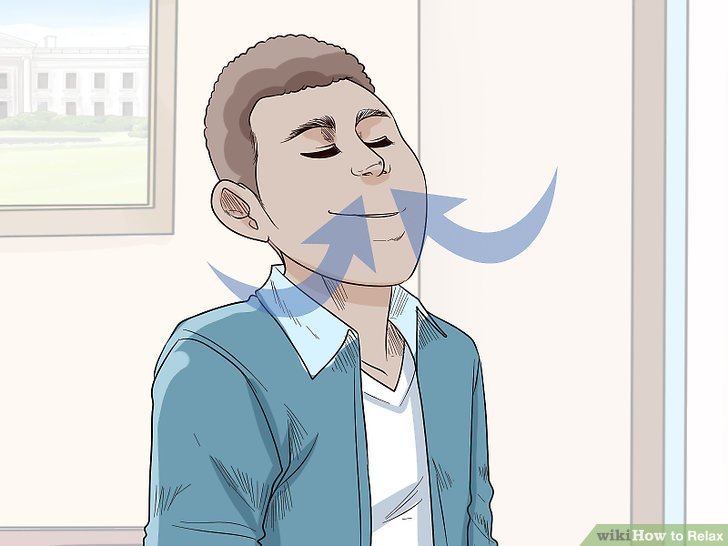These days, it’s common for us busy folks to experience rough and stressful days. Stress causes a lot of us to have feelings of anxiety, tension, and restlessness. Too much stress can take a toll on our physical, mental and emotional well-being.
Many people respond to stress by doing unhealthy habits: overeating, smoking too much, drinking too much alcohol and taking anti-anxiety pills that promise some semblance of relief but are likely to cause dangerous side effects.
Essential oils are a healthier and safer alternative to deal with chronic or acute stress. They help in reducing stress and its negative symptoms, relax the body and mind and provide soothing relief without the harmful side effects. Essential oils are oils that are derived from plants, and they have been used as a form of remedy and therapy since way back in ancient times. They are still widely used today pretty much for the same purposes and have been championed by health and wellness buffs.
But with a multitude of essential oils on the market, it’s pretty hard where to start. Well, if you are in a limbo which essential oil will exactly suit your needs, you have come to the right place! This article tackles what essential oils are and what benefits they provide to us.
What are Essential Oils?
Essential oils are highly concentrated extracts derived from plants, usually obtained by distillation. The aromatic part of the plant is where we get most of the essential oils. For instance, rose oil is obtained from the rose petals, while citrus oil is derived from the fruit’s fragrant rind.
Essential Oil Benefits and Uses
These essential oils are used for various uses: therapy (including aromatherapy), beauty and personal care, cleaning, and medicine. There are certain oils, such as lavender oil or sandalwood oil, that provide more than one or a couple of uses or benefits. You can find many products that use essential oils as a chief ingredient, including toiletries, cosmetics, skin care products, and household care products.
There are some certain essential oils that are also used for food and cooking, namely: peppermint, lavender, cinnamon, bergamot, cardamom and oils from various herbs. They add piquancy and character to your dishes.
Certain countries and cultures develop their own famous essential oils and scents. The combination of spicy and earthy aromas of sandalwood, cinnamon, and ginger are common in India. Eucalyptus, cedar and cypress oils, on the other hand, are popular in the Mediterranean region.
How Should You Dilute Essential Oils?
Just because essential oils are in their purest and all-natural form, it doesn’t mean that they are generally gentle, harmless and non-reactive. As a matter of fact, essential oils are extremely strong stuff, being 75 times as potent as dried herbs. So yes, you could suffer even intense skin reaction from them. That’s why care should be considered when handling and using essential oils.
One of the ways to mitigate the potency of essential oils is to dilute them by adding carrier oil. This is to prevent the likelihood of developing nasty skin allergies. Aside from that, adding a carrier substance to an essential oil enables it to be absorbed by the body more easily since any essential oil has the tendency to evaporate and dry out pretty quickly when it’s exposed to air.
Avocado oil, grapeseed oil, jojoba oil, olive oil, sunflower seed oil, and sweet almond oil are some of the oils that are commonly used as carrier substances. It’s because these oils are neutral and significantly less potent, so they are ideal substances to dilute essential oils.
While dilutions may differ depending on personal needs and/or the type of essential oils used, the general rule of thumb is to go for a 1%-to-5% solution. For instance, you will need six drops of essential oil to every ounce of carrier oil, which constitutes a 1% blend. For a 5% blend, you will require 30 drops of essential oil to every ounce of carrier oil.
Other ways to harness the power and effectiveness of essential oils:
For direct inhaling: 1-2 drops of essential oil in cupped hands, and take a deep breath.
For direct rubbing: 1-2 drops of essential oil and rub it onto temples, wrists or any part of your body for complete body relaxation.
For on-the-go use: Have a few drops of essential oil on a cotton pad, handkerchief or a scarf and inhale as needed.
For shower or bath: Add about a few drops of essential oil to your shower or bath, plug or cover the shower or bathtub drain, and inhale deeply. Now you have instant aromatherapy straight from your own bathroom!
For diffuser: You can also use a diffuser to get the longer-lasting effect and benefits of essential oils.

